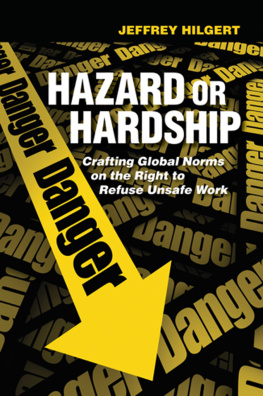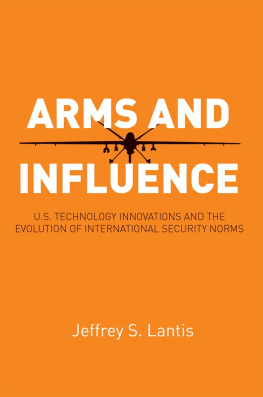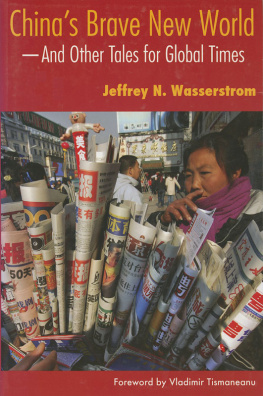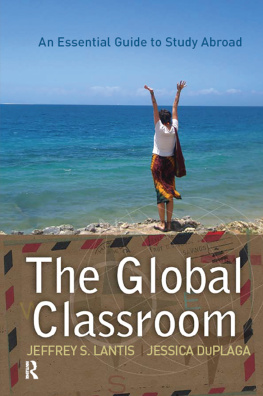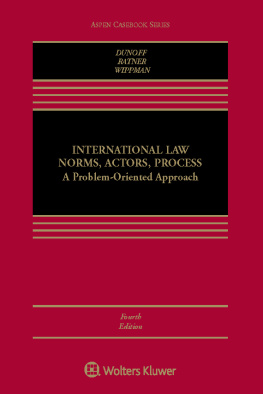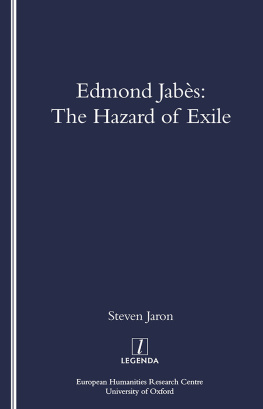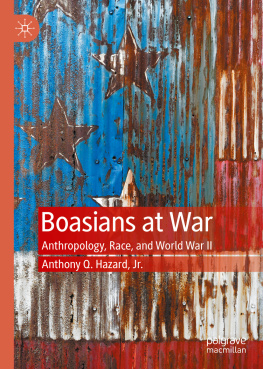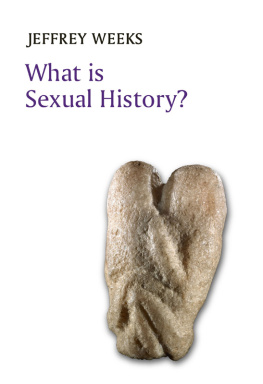Jeffrey Hilgert. - Hazard or Hardship: Crafting Global Norms on the Right to Refuse Unsafe Work
Here you can read online Jeffrey Hilgert. - Hazard or Hardship: Crafting Global Norms on the Right to Refuse Unsafe Work full text of the book (entire story) in english for free. Download pdf and epub, get meaning, cover and reviews about this ebook. year: 2018, publisher: Cornell University Press, genre: Politics. Description of the work, (preface) as well as reviews are available. Best literature library LitArk.com created for fans of good reading and offers a wide selection of genres:
Romance novel
Science fiction
Adventure
Detective
Science
History
Home and family
Prose
Art
Politics
Computer
Non-fiction
Religion
Business
Children
Humor
Choose a favorite category and find really read worthwhile books. Enjoy immersion in the world of imagination, feel the emotions of the characters or learn something new for yourself, make an fascinating discovery.
- Book:Hazard or Hardship: Crafting Global Norms on the Right to Refuse Unsafe Work
- Author:
- Publisher:Cornell University Press
- Genre:
- Year:2018
- Rating:5 / 5
- Favourites:Add to favourites
- Your mark:
- 100
- 1
- 2
- 3
- 4
- 5
Hazard or Hardship: Crafting Global Norms on the Right to Refuse Unsafe Work: summary, description and annotation
We offer to read an annotation, description, summary or preface (depends on what the author of the book "Hazard or Hardship: Crafting Global Norms on the Right to Refuse Unsafe Work" wrote himself). If you haven't found the necessary information about the book — write in the comments, we will try to find it.
Jeffrey Hilgert.: author's other books
Who wrote Hazard or Hardship: Crafting Global Norms on the Right to Refuse Unsafe Work? Find out the surname, the name of the author of the book and a list of all author's works by series.
Hazard or Hardship: Crafting Global Norms on the Right to Refuse Unsafe Work — read online for free the complete book (whole text) full work
Below is the text of the book, divided by pages. System saving the place of the last page read, allows you to conveniently read the book "Hazard or Hardship: Crafting Global Norms on the Right to Refuse Unsafe Work" online for free, without having to search again every time where you left off. Put a bookmark, and you can go to the page where you finished reading at any time.
Font size:
Interval:
Bookmark:
Refuse Unsafe Work
| AFL-CIO | American Federation of Labor and Congress of Industrial Organizations |
| CEACR | Committee of Experts on the Application of Conventions and Recommendations |
| CESCR | Committee on Economic, Social and Cultural Rights |
| CFA | Committee on Freedom of Association |
| CFR | Code of Federal Regulations |
| CSST | Commission de la sant et de la scurit du travail |
| DOL | Department of Labor |
| ECOSOC | United Nations Economic and Social Council |
| FIR | final investigation report |
| ICESCR | International Covenant on Economic, Social and Cultural Rights |
| ILC | International Labour Conference |
| ILO | International Labour Organization |
| IRS | internal responsibility system |
| NCB | National Coal Board |
| NDP | New Democratic Party |
| NIOSH | National Institute for Occupational Safety and Health |
| NLRA | National Labor Relations Act |
| NLRB | National Labor Relations Board |
| OCAW | Oil, Chemical and Atomic Workers |
| OECD | Organisation for Economic Co-operation and Development |
| OIG | Office of Inspector General |
| OSHA | Occupational Safety and Health Administration |
| UDHR | Universal Declaration of Human Rights |
| UFW | United Farm Workers |
| UN | United Nations |
| USWA | United Steel Workers of America |
| WEP | World Employment Program |
Font size:
Interval:
Bookmark:
Similar books «Hazard or Hardship: Crafting Global Norms on the Right to Refuse Unsafe Work»
Look at similar books to Hazard or Hardship: Crafting Global Norms on the Right to Refuse Unsafe Work. We have selected literature similar in name and meaning in the hope of providing readers with more options to find new, interesting, not yet read works.
Discussion, reviews of the book Hazard or Hardship: Crafting Global Norms on the Right to Refuse Unsafe Work and just readers' own opinions. Leave your comments, write what you think about the work, its meaning or the main characters. Specify what exactly you liked and what you didn't like, and why you think so.

